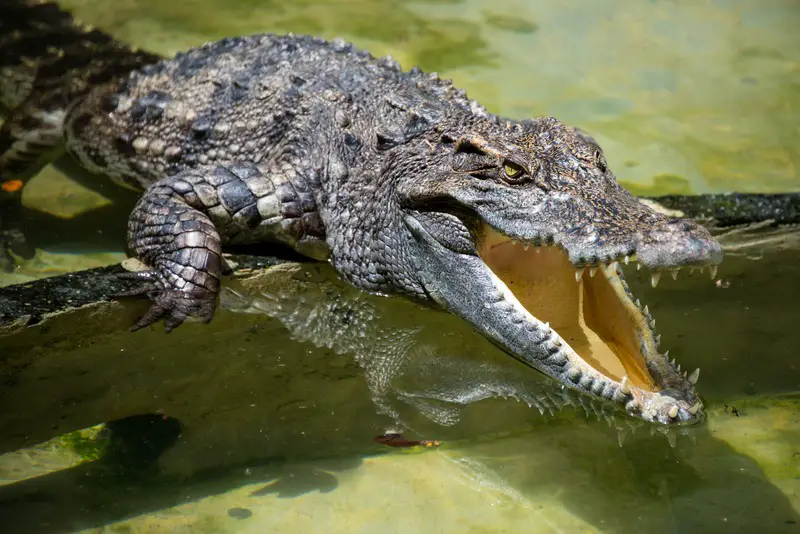The northeastern region of Australia is once again under scrutiny following the death of Dr. Dave Hogbin, a 40-year-old man from New South Wales, due to a fatal crocodile encounter. This constitutes the second crocodile attack within a month and the third such occurrence this year, raising questions about human-crocodile interactions in Queensland and the Northern Territory.
Dr. Hogbin was vacationing with his wife, Jane, and their three young children in Cooktown, Queensland. On the afternoon of Saturday, August 3, 2024, while walking on a path along a steep riverbank near the Annan River, a portion of the bank unexpectedly collapsed beneath him, causing him to fall into the water.
Local Cooktown resident Bart Harrison described the area as notoriously risky due to the presence of large crocodiles. “We grew up watching the crocs swim around there, and I wouldn’t go near that edge,” Harrison stated.
Jane Hogbin detailed the moment she heard the splash and hurried to aid her husband. She tried to pull him to safety by grabbing his arm but began slipping into the river herself. In a final act of selflessness, Dr. Hogbin released his grip to prevent his wife from falling in, sacrificing his life.
Following the incident, a search operation was initiated to find Dr. Hogbin and emergency services were summoned to the Annan River Bridge. On Monday, wildlife officials located and euthanized a 16-foot crocodile in a nearby creek, roughly two miles from where the attack took place. The crocodile had distinct scars on its snout, leading authorities to believe it was behind the attack. Human remains discovered inside the crocodile are thought to be those of Dr. Hogbin, pending official identification.
Dr. Hogbin was revered as a devoted general practitioner at Jewells Medical Centre near Belmont, Newcastle. His medical career was marked by a dedication to pediatrics, dermatology, and acute care. He was recognized for his energetic nature and love of outdoor activities, particularly four-wheel driving and camping with his family. Mrs. Hogbin stated that he did everything correctly, but the tragedy still happened. She conveyed that her husband had impacted many lives and felt it was important for people to know who he was and how he died.
The incident has left Dr. Hogbin’s family and friends heartbroken. During this difficult time, his friend Alex Ward started a GoFundMe campaign to assist his wife and their three sons, aged two, five, and seven. As of August 6, the page had raised over $35,000. Ward praised Hogbin for his commitment to his family and adventurous spirit, acknowledging the profound sense of loss while expressing gratitude for the outpouring of support.
This incident is part of an alarming sequence of crocodile attacks across Australia’s tropical north. Just weeks prior, a 12-year-old girl lost her life to a crocodile while swimming with her family in a creek in the Northern Territory. In April, a 16-year-old boy was killed in another crocodile attack while swimming off an island in Queensland. These incidents bring the total number of fatalities from crocodile attacks in Australia to three this year, nearing the highest annual count of four recorded in 2014.
Since the species was protected under Australian law in the 1970s, the crocodile population in Australia’s tropical north has grown significantly. These reptiles, which can live up to 70 years, have flourished, resulting in increased encounters with humans. Crocodile expert at Charles Darwin University, Brandon Sideleau, suggests that feeding crocodiles with roadkill, such as kangaroo carcasses, has made these predators associate humans with food.











